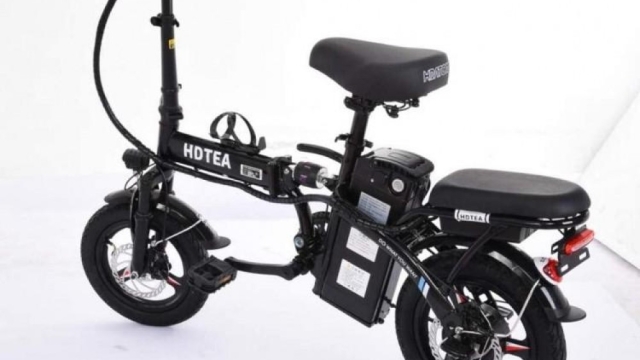
Electric bikes, also known as e-bikes, have been gaining popularity as a convenient and eco-friendly mode of transportation in urban areas. With technological advancements and a growing emphasis on sustainability, more individuals are turning to electric bikes for their daily commutes and leisure rides. Companies like Freedare Bikes are at the forefront, offering a diverse range of premium electric bikes and cycling accessories to cater to different preferences and needs.
Whether it’s the Saiga Step over Fat Tires model for adventurous off-road biking or the Eden Step thru Ebikes for a comfortable city ride, the options for e-bikes are expanding. These innovative electric bikes not only provide an effortless and efficient way to get around but also promote a healthier lifestyle and contribute to reducing carbon emissions. Shopping for premium e-bikes online has never been easier, with shops offering free shipping to make the transition to electric biking seamless and enjoyable.
Benefits of Electric Bikes
Electric bikes offer a convenient and eco-friendly mode of transportation for individuals looking to reduce their carbon footprint and embrace a more sustainable lifestyle. With electric assistance, riders can effortlessly conquer hills and cover long distances without breaking a sweat, making commuting to work or running errands a breeze.
One of the key advantages of electric bikes is the flexibility they provide in terms of physical exertion. Riders can choose to pedal using varying levels of assistance or rely entirely on the electric motor, allowing for a customizable and comfortable riding experience. This versatility caters to a wide range of fitness levels and enables individuals with mobility issues to enjoy the benefits of cycling.
In addition to promoting health and fitness, electric bikes also contribute to alleviating traffic congestion and reducing air pollution in urban areas. By opting for an electric bike as a mode of transportation, riders can bypass traffic jams, access bike lanes, and arrive at their destinations quicker, all while enjoying the outdoors and staying active.
Factors to Consider When Choosing an Electric Bike
When selecting an electric bike, one important factor to consider is the bike’s range. The range indicates how far you can ride on a single charge, so it’s crucial to choose a bike with a range that suits your daily commuting or recreational needs.
Another key consideration is the motor power of the electric bike. The motor determines the level of assistance you’ll receive while pedaling, affecting both the speed and ease of riding. Make sure to choose a motor power that aligns with your intended riding terrain and style.
Lastly, take into account the bike’s weight and frame material. A lighter bike may be easier to handle and transport, while the frame material can impact durability and comfort. Consider your own strength and the places you plan to ride to determine the ideal weight and frame material for your electric bike.
Get The Best Price
The Future of Electric Bikes
In the ever-evolving world of transportation, electric bikes are set to revolutionize the way we commute and explore our surroundings. With advancements in technology and a growing demand for eco-friendly options, the future of electric bikes looks promising.
Freedare Bikes, a leading provider of premium electric bikes and cycling accessories, is at the forefront of this movement. Their innovative designs, such as the Saiga Step over Fat Tires and Eden Step thru Ebikes, showcase the blend of style, functionality, and sustainability that electric bikes offer.
As more people embrace the convenience and eco-consciousness of electric bikes, we can expect to see further developments in battery efficiency, design aesthetics, and integration of smart technology. The shift towards electric bikes is not just a trend but a significant step towards shaping a greener and more accessible future for urban mobility.

